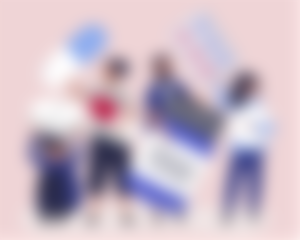In the past (probably in the 90's) I translated a time management book at the suggestion of the publisher. One of the best readers of a book is the person who translated it. Because the translator attaches importance to the book and his labor; is the person who tries to fully understand the work on the basis of content, sentence and word. The time management book, which I carefully tried to translate, showed me how lacking I was in this area. Such that; “Wow! It turns out that I have all of the misbehavior described in this book ”. To sum up; almost all of us experience mistakes, shortcomings or weaknesses that we do not notice. When we see and remember them, the possibility of change and improvement arises.
In the first years when electronic technology made a great progress and expansion, mobile phone, camera, etc. The package of the devices included a hand guide of at least one finger thickness to explain the installation and use. Now these guides are either provided on CD / DVD or we have to download them from the Internet. But in any case, we are faced with a document of over 100 pages to be read. Such a comprehensive document is never tempting for people who are not 'keen' to read. On the other hand, people who we can find right or wrong but who live in a busy pace for different reasons do not attempt to read such a comprehensive guide.
We are in the Information Age. The amount, diversity, and the speed and acceleration of the information that surrounds us have gone far beyond the old times. Long and comprehensive readings, the main development technique of the past, are replaced by new approaches based on visuality and practice. Advances in virtuality aim to support the learning process in a faster way. But in any case, reading, albeit quickly and briefly, remains its importance and value as a traditional learning way.
Productivity

In simple terms, productivity is the ratio of the amount of output we get as a result of doing a job and the amount of resources we spend on that job. In other words, productivity as a goal means producing more with less. Therefore; When we want to make personal development suggestions on productivity, we have to aim to be "efficient" both in terms of content and form of presentation, as an internal requirement of this special issue.
Time has a special importance in the definition of efficiency. Even though we perceive the phenomenon of time in many different ways emotionally and intellectually (at least for now) there is a constant truth. It is not possible to store, rewind or forward, reclaim, extend or shorten time. We have to live the time in that moment. When it passes, it becomes 'past'. For this reason, when it comes to personal productivity, using time efficiently for every aspect of life becomes an important long-term goal.
When we look at the recent popular trends (such as simplicity, simplicity, protectionism, resistance to aging, etc.), we see that all of them are essentially based on efficiency (especially time efficiency). In the past, the tendency to use the world's and human resources in a reckless and uncontrolled manner began to be replaced by more attentive approaches to the future. On the other hand, as in every subject (some may be malicious or malicious), the search for efficiency of different interests also creates a new conflict area. But one of the rare things that truly belongs to us is our own life. Under all circumstances, a more productive life will be one of the natural goals of our existence. Undoubtedly, efficiency does not mean "simplicity" or "ordinaryization". After all, we are looking for a better life we deserve.
Doing Multiple Jobs at the Same Time

One of the prerequisites for increasing productivity is to know the reasons that make a person inefficient, and therefore to get rid of them. These reasons often stem from our memorization (our mind map) about life and the way we do business. By changing our mental programs, we can gain the qualities of living and doing business more effectively and efficiently. In addition, increasing personal productivity can be achieved with techniques much easier than these sentences imply.
In some workplaces, the chaos type of hustle and bustle, where everyone tries to do more than one job at the same time, has become a part of daily life. In fact, those who work in this way (like "We work hard like this") express it as a source of pride or a sign of extra intelligence in a 'masochistic' attitude. But unfortunately, researches on work efficiency reveal that situations where more than one work is tried to be done at the same time should not be a cause of pride at all. In cases where one job is done at a time, the rate of efficiency is much higher.
A psychiatrist conducted an experiment with the participation of students at King's College, a public research university in London, England in 2005. Students, who were chosen by choosing them regardless of any rule or feature, and were divided into three groups, were asked to answer an intelligence test. The students in the first group answered the test in their usual state. Those in the second group were "harassed" by e-mail and mobile phone calls during the test. The subjects in this group also had to browse their e-mails and deal with the phone during the test. Those in the third group took the test after using the drug called marijuana. The first group achieved 10 points better than the other two, which was expected. The interesting thing was that the group who was disturbed by e-mail and phone calls received an average of 6 points lower than the group using drugs. In addition to trying to answer the test, subjects who had to deal with e-mail and phone simultaneously had the most unsuccessful results. The result of this interesting experiment was interpreted by experts as having to deal with more than one job at the same time reduces personal productivity.
In today's world where the Internet and smart phones occupy our time much more, we can observe the reality of this situation by returning to our own "virtual life". Social media, which we see as a means of socialization, or devices such as e-mail and phones that we use as communication tools, or computer games, which are our new entertainment toys, cause serious decreases in our daily life and work efficiency. This situation points to a danger that we should seriously think about. Today, praise is being written on the Internet and social media for individuals to produce and develop their own content. Now we have to question whether these platforms and tools are really a 'factor of production' or new means of self consumption.
What should we do?

In the past, services such as telegraph, fixed telephone, telex machine, wireless or fax device met the communication needs. Nowadays, we use smart phones that provide new convenience and speed and the Internet environment widely for this purpose. In a world that accelerates and expands, it is not possible to live with the vehicles of the past. But on the other hand, we have to keep in mind the efficiency criterion. The framework I summarized above provides clues that focusing on one job at a time will work better to use our personal or corporate resources more efficiently.
If you are doing important work, turn off your mobile phone during the time you allocate to this job; Stop looking at your e-mail account or web page of interest at very short intervals. To sum up; either be in a busy state or go into a state of complete rest. Being in a half-work, half-fun state, which we can call the gray zone, increases inefficiency and negatively affects achieving successful results. You can start by developing rules (eg scheduling) for situations that prevent you from concentrating on one task.
Working Efficiently, Resting Effectively

One of the criteria for which the formal education system has found its own development process is that the course duration is 40 minutes, followed by a break of 10-15 minutes. Similarly; Each person can use 60 to 90 minutes of working time effectively and efficiently, depending on his or her own structure and habits. Average time with lower and upper limits of 60-90 is suitable for a good study. 60 minutes is enough to concentrate on a task, to build effective mental activity and attention. On the other hand, 90 minutes, which is the upper limit, represents the upper limit before mental exhaustion. Undoubtedly; The numerical values I give represent an average even though it has been studied scientifically. Each person should determine the working range in which he will be productive by observing his habits, mental and physical reactions, and by making experiments.
Most people will receive physical or mental signs that their work is starting to become unproductive. At least, his school experience or training he received due to work may have given him clues for productive study time. On the other hand, it is observed that people living in intense pace cannot achieve the success they show in working at rest. In most personal examples, a break from one study is interpreted and applied as dealing with another job. However, the 5-10 minute break given should be used for resting, mental and physical regeneration.
Filling the rest period with another job results in the job being inefficient or semi-productive. Spending the rest time, for example, a short walk in the open air or a short nap (half-sleep) allows the brain to literally rest. The aim is simply to idle mental and physical activities. The brain, which is at the center of human activities, is no different from another organ in terms of power and energy use. The brain also gets tired. The time provided for him to rest allows for much more effective and efficient processing when he returns to work.
Planning the Time Exactly

Many people work disorganized in daily business. It carries out a work in the form of getting the job done without any prior preparation. When it reaches the point of 'drowning', it starts to need planning or experiences the negative consequences of trying to maintain the disorder. On the other hand, think that over-regularity and plannedness are disciplined and it is a pride for people. It is a source of pride for such people to prove to others how planned they are in their business and activities. Is it really a "good" solution to plan every moment of the day and try to live like this?
We live in a multifactorial, complex environment. The ever-changing ecosystem constantly increases the level of chaos. In such a new world, we cannot expect everything to go according to our plan. Delays, delays or unexpected obstacles will negatively affect our plan. Our emotional and intellectual structure built on excessive planning is negatively affected by such unexpected developments. The result is a state of tension, which is one of the important causes of inefficiency.
Planning also means taking into account any setbacks that may occur. Planning the day or an activity punctually can turn into a completely useless effort due to the obstacles that will occur. Some jobs can be planned more precisely; In others, it is necessary to be more flexible according to the conditions of the influencing factors.
Undoubtedly; should plan things. However, it is always more efficient and profitable to make simple but flexible plans taking into account the negativities. Another important point to note here is that planning is done by us. Otherwise, we are condemned to live and work in an environment of disorder and chaos created by other factors and actors. This too; for a workplace, it points out that productivity is about corporate culture as much as a personal issue (the need to create a productivity-based corporate culture).
Time and Attention

We have people who bargain for a few cents while buying vegetables and fruits in the market. This ritual is a part of the social cultures of eastern societies. You do not see such people with the same firmness in their use of time, energy, and effort on a personal level. A significant part of the day is spent on activities that are not important and urgent (not even recreational). "Frugality" regarding money is not shown in the consumption of other human resources; Often times the value of them is not even understood.
Those who have had the opportunity to observe the diversity of the business world have observed that many successful entrepreneurs are unable to demonstrate their ability to earn, retain, and increase the return of money in their personal use of time, energy and effort. I remember examples of industrialists and traders who spend their strategic time on ordinary jobs that can be done by relevant intermediate managers. In social and business life, most people spend their valuable time and effort by dealing with many trivia that will not make them feel happy and productive.
Necessary? Urgent? Important?

Is reading a novel a necessary, important and urgent pursuit? Or is it more important to follow technological developments in the world? Should we spend all our time looking for new market niches or prospective customer profiles? Should the boss attend an employee's birthday celebration at work? We can produce many more similar questions or fiction that will create contradictions in our minds. First of all, what we need to do is to realize the time slice needed for working and recreation and to perform the action of each slice within that time. My language always has a mission. The time of leisure-listening (usually non-work activities) means socially and culturally improving ourselves as well as mentally and physically rejuvenating. During the working time, we try to do the jobs suitable for our position and role more effectively and efficiently. The important point is to ensure that the resource we will consume for the action in question is appropriate in economic, social and personal aspects. The most important thing is to do this by being aware, knowing, choosing and consenting to the results.
We observe that many people do not correctly distinguish between social time and working time that I have summarized above. Their time-energy-labor source is consumed neither for fun nor for work. A little research on our own way of consuming personal resources (eg use of time) reveals how unnecessary, useless, and rewarding we deal with. For this purpose, just taking notes in hour-minute terms of how we spend a day will be enough to see the "painful truth".
Intangible Resources
You can watch that the money in your wallet or bank account is running out due to expenses. You can observe whether the sea is calm or wavy, the air is clear or cloudy (change from calm to wavy, clear to cloudy). We use tools such as calendar-clock to scale the passage of time. On the other hand, there are no tools that we can easily measure about our mental focus and attention power. We easily consume such intangible resources; but we are not aware of this usage.
We can think of an example showing that mental focus and attention are truly a resource. You have placed an order for the necessary raw materials to be sent to your supplier in order to produce an urgent customer request in your business (not working on weekends). You expect the necessary materials to be at your facility at the beginning of the new week. At the end of work on Friday evening, you left the workplace dreaming of the activities you want to do on the weekend. When you got home, you saw an email from the supplier; There is a disturbing air in the post that there may be problems in getting supplies. It is not possible to reach anyone from the supplier's workplace. In such a situation, can you have a joyful weekend? Is it possible to focus carefully on the activities you plan for the weekend? Or will you have a problem of focus and attention for two days, scared of the problems that will occur at the beginning of the week? However, you have enough time and energy to carry out the activities planned for the weekend; but your focus and attention problem is getting in the way of your productivity. Request; focus and attention are so important to efficiency.
Focusing

We encounter many different problems and problems within the framework of daily home, work, school life and social relations. This diversity can often necessitate a change of our concern. On the other hand, it is another fact that we need to focus in order to achieve every job properly. Changing the concentration and focusing between subjects is a skill related to being able to direct our attention in the direction we want. We can say that this skill changes depending on our personal material and mental characteristics. Each individual exhibits different focusing characteristics. In addition, the subject to be focused on and the time of this may cause the individual to differ in the level of focus. Although we develop our focus profile spontaneously in life - even with the effect of some factors - we can make improvements and developments in this regard.
A person's positive-negative emotion-thought profile affects focus, which is one of the pillars of achieving efficient work. When we have difficulty in focusing, we experience situations such as not being able to concentrate on the next job, not being able to understand what is told, not being able to remember the events we have experienced, or persistent distraction. The problem of focus can also be caused by anxiety-anxiety, depression, trauma, hyperactivity or other mental problems that fall within the specialties of personal development or psychiatry. To summarize; efficient work is directly related to focus performance; In order to achieve personal efficiency, it is necessary to overcome the problems of focus — to take measures to overcome them.
For Focus
The human mind is like a naughty child. We dream of ice cream, chocolate or cookie with this childhood feature, even though there is a quality and healthy meal in front of us. It is common for us to easily drift on other thoughts while working on a topic. In order to work efficiently, it is necessary to be able to capture this moment that leads to out of focus. It can be an important issue that disturbs our focus; If this is the case (to deal with later), we can make a short note about this idea and go back to what we are working on. This practice will be instructive for us to work more focused over time. In this context, we should be aware that dealing with multiple issues at the same time will likely result in lower performance and quality across all jobs. One of the easy conditions to achieve high efficiency is to prefer to focus on one job at a time.
I mentioned above our thoughts that prevent focus by doing 'mischief' during a study. If an activity is occurring in our mind, it can be explained, it probably has a logical reason. It is a good idea to take time during the day to solve 'mischievous' situations that cause us particularly concern. For this purpose, the time to be allocated in the appropriate place is for us to deal with the 'confusing' and disturbing feelings and thoughts. Meanwhile, we develop solutions and if we cannot implement them immediately, we take notes for implementation later. Here, too, it is appropriate to use the 5N1K (what, when, where, how, why, with whom) Rule of personal development as a technique.
The way to overcome physical fatigue is to rest. Meanwhile, our body finds the opportunity to refresh itself. This is likewise valid for the mind. It is necessary to plan the study with certain rest breaks. A very short rest break does not detract from the expected refreshment. Too long a break brings about a break from work and concentration. Also, a rest break does not mean dealing with another task. The important thing is to refresh yourself physically and mentally. Everyone can have their own resting choice, from lying down with their eyes closed, to a short walk.
Regardless of the type; It is important for our personal development to make working not a routine job and a part of learning. Thus, we both develop our focus and provide a fun working climate.
Remember

In our business life, we often have to read documents, reports, executive summaries, procedures, instructions or work orders. These include valuable information for later recall and use. We may need to be more selective rather than caching every part of a text with the same care. Researches show that what is learned at the beginning and after the learning process, striking words, nouns and vivid and different descriptions remain in mind. Paying attention to this finding while preparing a text or reading a document can increase recall efficiency.
Each copywriter has a unique style and style that may be different to us. Expressing (imagining) the information we are reading or listening to in our own words, articulating it with what we already know, and associating it with our own life-work experience makes it easier to remember.
Research on learning and recall reveals that approximately one-third of information read, listened to or watched is forgotten within an hour. 80 percent of them are forgotten after 9 hours. For this reason, repetition has to be an important activity in the learning process for information to become more permanent. For this purpose, we can develop a practice like this: After about 40 minutes of reading, listening and watching, 10 minutes of repetition will reinforce learning. On the other hand, we don't have to learn everything by heart. Some reading and watching is for instant recreation and entertainment. Making this distinction carefully reduces mental burden.
My own personal experience shows that one of the most successful learning approaches is writing. Telling someone else about a topic we are working on or writing as a text or presentation reinforces the learning process. The process of narration or writing is extremely useful in determining which parts of the subject we are dealing with have not been studied enough and where question marks or unknowns are located.
Listening

Meeting is one of the most frequently used tools for decision making, sharing and coordination in the business environment. Thus, we have the opportunity to monitor more than one person and different opinions and to compare them with our own approach. If the meeting environment turns into a chaos that every person has to say whatever comes to mind at that time, then the meeting turns into an unhelpful waste of time. Therefore, meeting management must be a defined process in the life of an organization. This determination also requires that factors such as the meeting agenda, participants, start and end times be determined in advance.
It is indispensable for successful listening and participation in the meeting (or in any other environment) to prepare in advance about the subject we will listen to. Producing questions or explanations about the issues that can be asked before the meeting and while the work continues, increases the efficiency of the meeting. Taking notes on the topics discussed during the course of the meeting contributes to subsequent reviews and recalls. We can write down a few words or scribbles to remember what we have to say about a subject being discussed at that time when it is our turn to speak.
In the meetings, it is common for the participants to move out of the main topic quickly. We often observe such deviations, especially in communities that have not developed a meeting management culture. For this reason, keeping the conversations within the main subject is a point that every participant should pay attention to as much as the meeting manager.
In a meeting (or in an environment where we need to listen), it often happens to "fall" off the topic by rapidly plunging into other thoughts (dreams). We suddenly find ourselves in other dreams. Those who exaggerate this are those who start to sleep. If such a situation happens to us, what we need to do is to quickly return to mindful listening. If there is an issue we missed, we can resolve this deficiency by meeting with another participant.
Read

No no; The secret to working efficiently is not to work hard and get tired! The important thing is to be able to work effectively and accurately to achieve the goal we set within the framework of rules and resources. Because the concept that I call efficiency is directly related to the output and result we will obtain. For this reason, we must first try to eliminate the factors that negatively affect the yield. This is sometimes related to the right place and time, and sometimes to planning. On the other hand, there may always be insufficiencies in the regulations we have created for efficient work; we can look for possibilities for improvement instead of grieving or complaining about it. As the obstacles in front of our mind and body weaken and disappear, we can work more effectively and efficiently and get results.
There are those among us who do not touch the written paper as well as those who have made reading a valuable activity of their lives. But reading does not mean that the expected or required learning level has been achieved as a result of reading. As inefficient working is a reality, another activity of life is inefficient and ineffective reading. Never reading too much means learning too much. This situation is about why and how we read as much as what we read.
There are some clues provided by research on reading. For example, getting stuck on a word or syllable while reading, this drags us into irrelevant dreams, often going back in reading, reading with lip movements or at low speed are the main causes of inefficiency in this activity. Although there is no need to be a guru when it comes to speed reading, it is a good exercise to try to read a set amount of words, sentences or pages at a certain time.
Each sentence or each paragraph, designed and written correctly, aims to express a certain idea. For this reason, it is important to catch the main idea while reading. In this context, reading should aim to understand more than memorize. After finishing a certain chapter in reading, trying to repeat what is described there to ourselves (as well as a reading assessment) is an effective technique for learning reading efficiency. I write short notes with a pencil on the right or left ruler of the pages and paragraphs that interest me in my own reading. It is easy to search and find later when I need it. In addition, these notes express what my reading means to me.
Attention Management

When the meeting becomes very boring, we either start to sleep or haste dreams occupy our minds. However, the agenda of the meeting is important and we need to keep our interest in the issue. The problem we have in this simple example is an attention management problem. During any work, "things" that are not trivial or related to the main subject occupy our mind, emotional or physical troubles we experience at that time, or other external factors are the reasons that distract us. For focused attention management, first of all, negative external effects should be eliminated.
Attention management is primarily concerned with organizing the physical environment for comfortable work. Being aware of the purpose and objectives of the study is indispensable for careful, effective and efficient work. Correctly determined rest breaks increase working efficiency by contributing to physical and mental refreshment for attention management. If some anxieties, worries and fears interfere with the study, it would be more appropriate to address them separately outside of the study. We can achieve this kind of focus.











